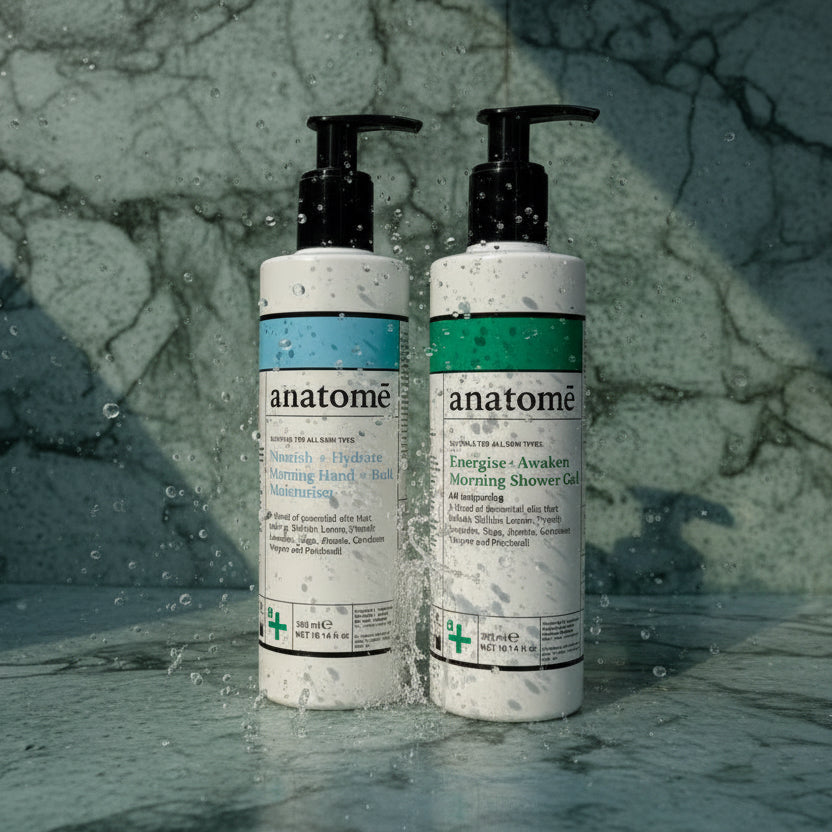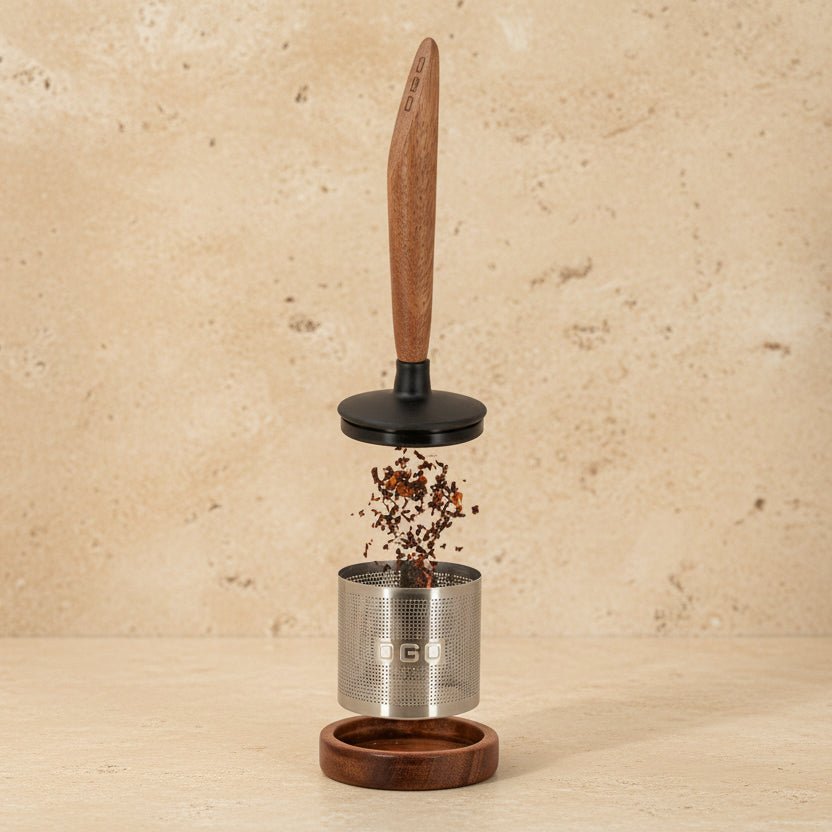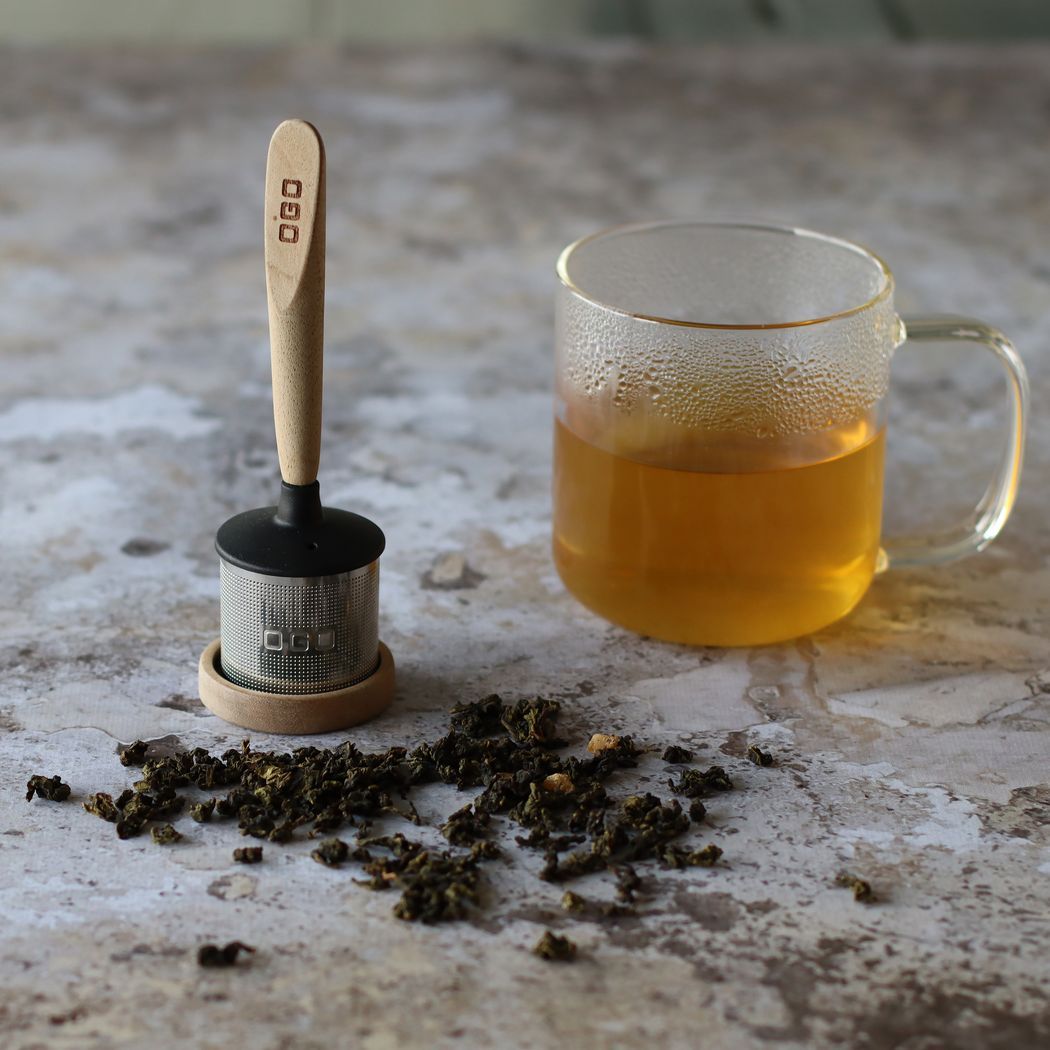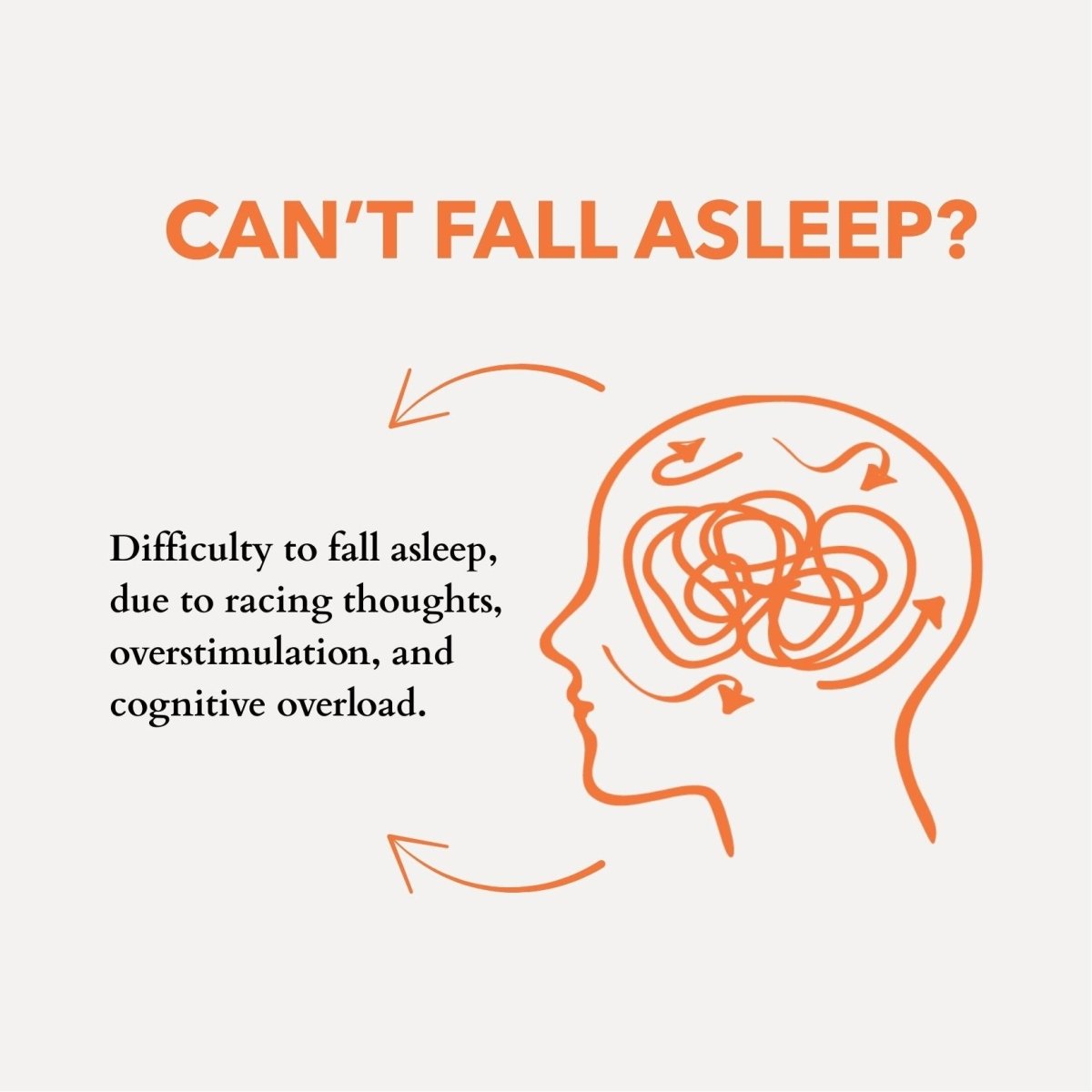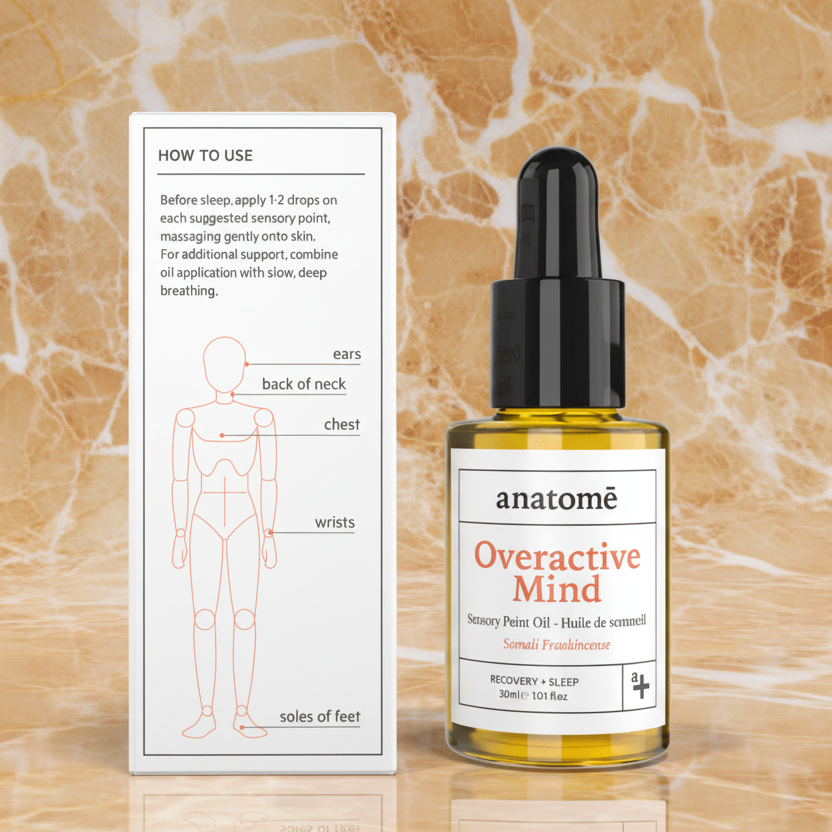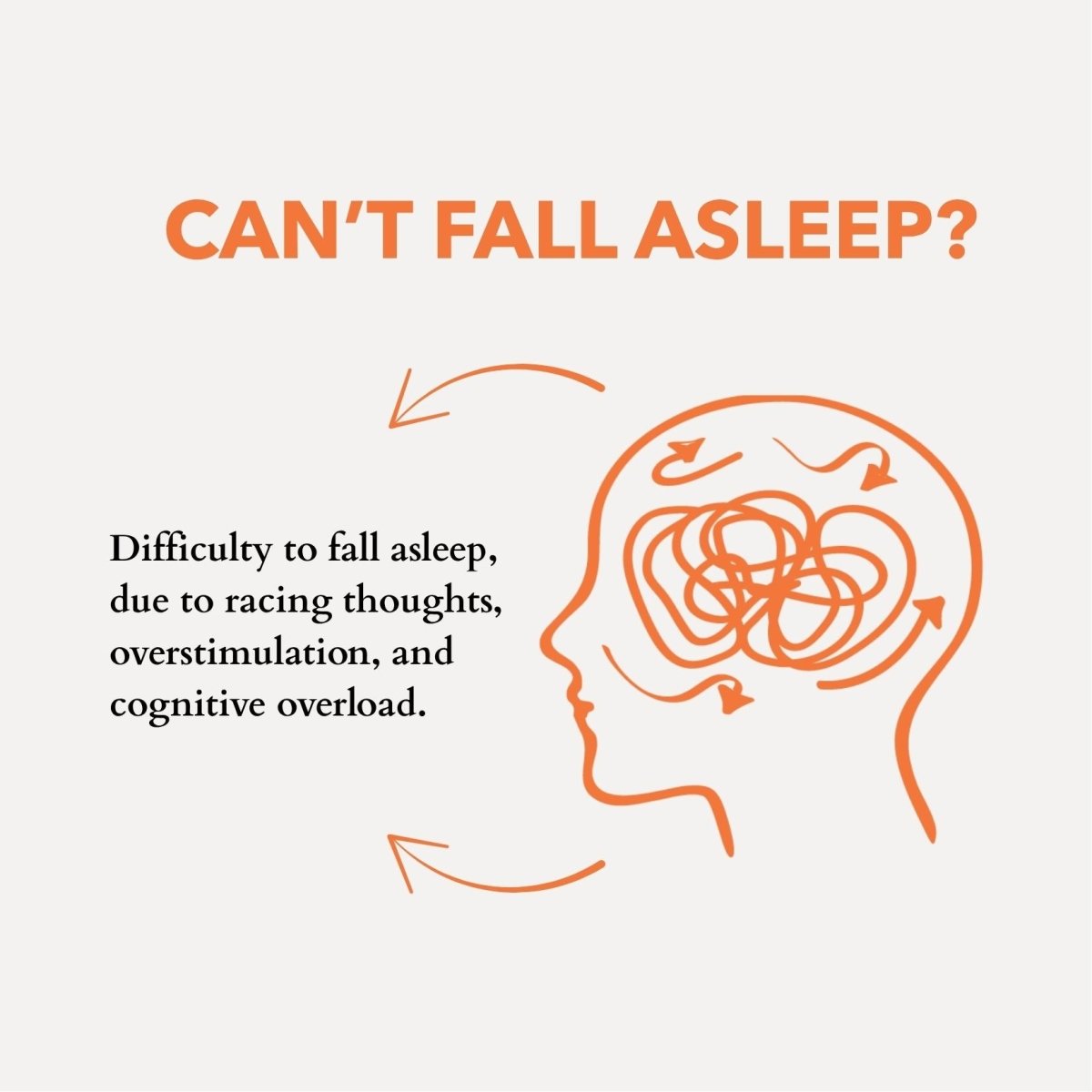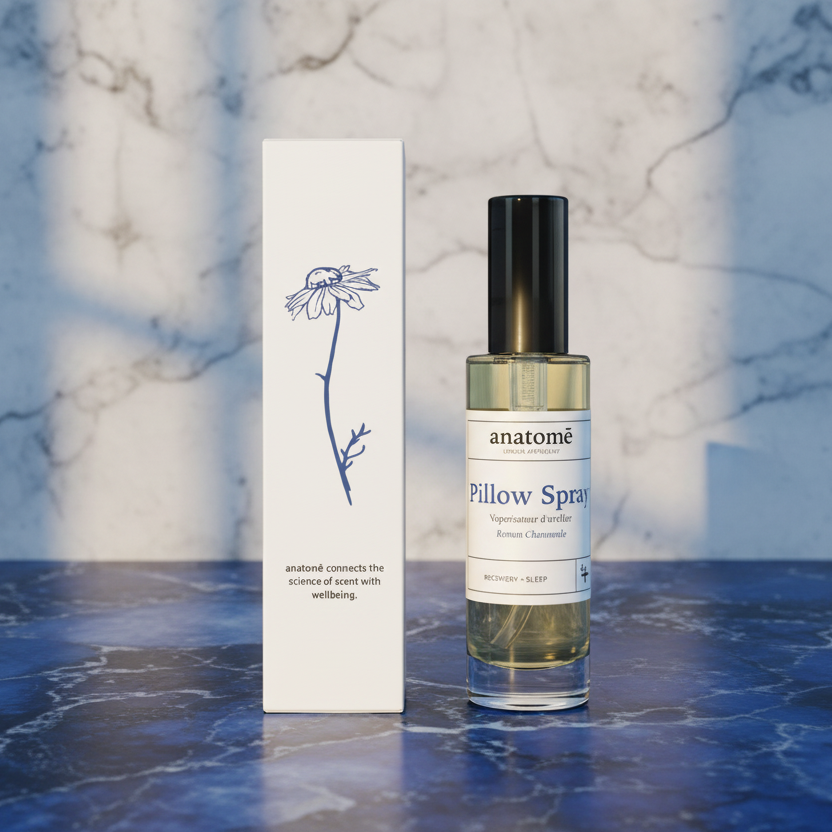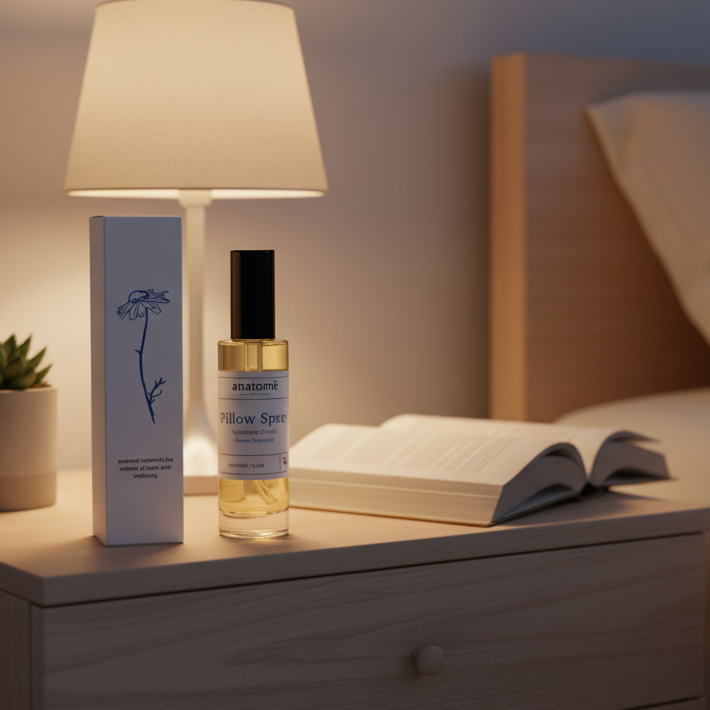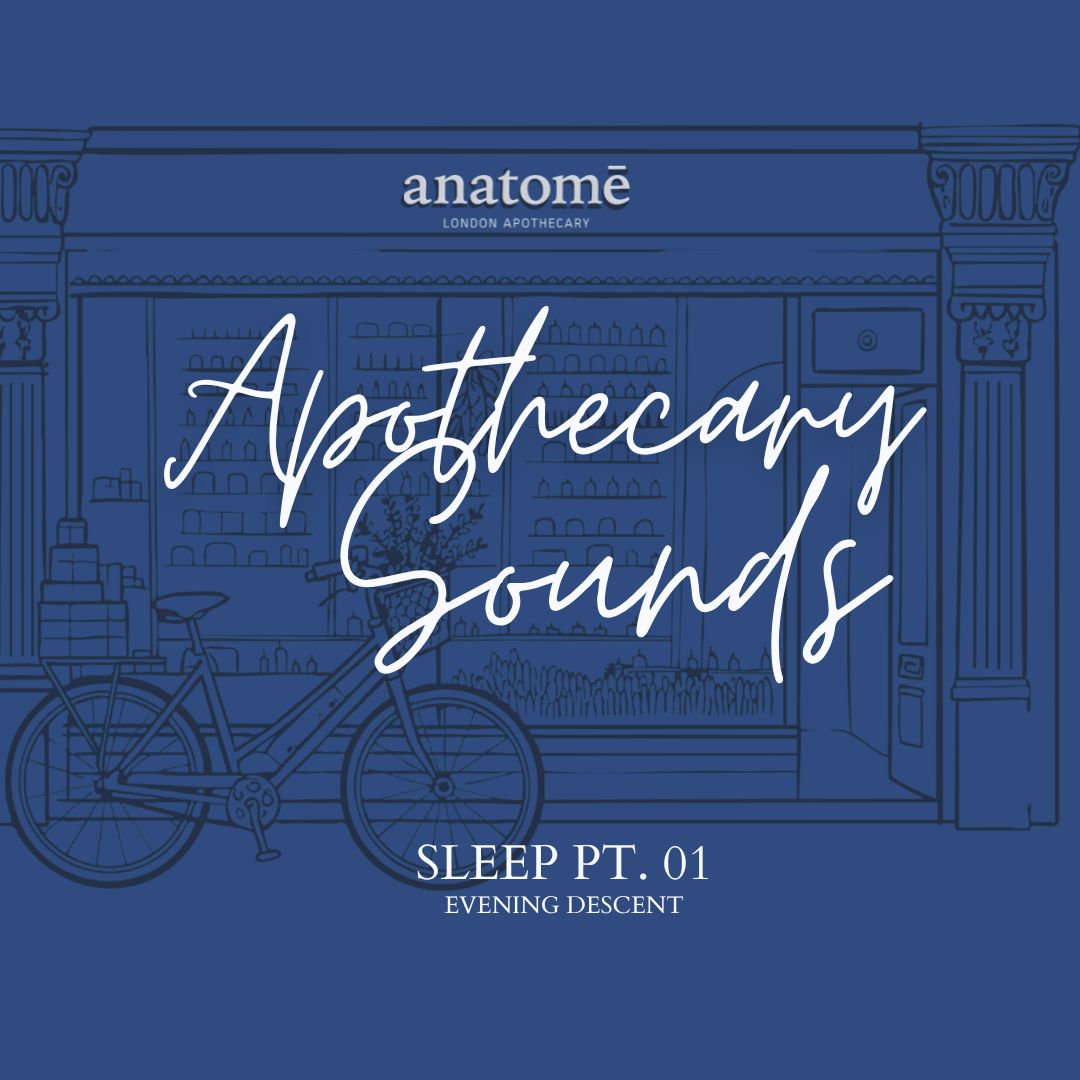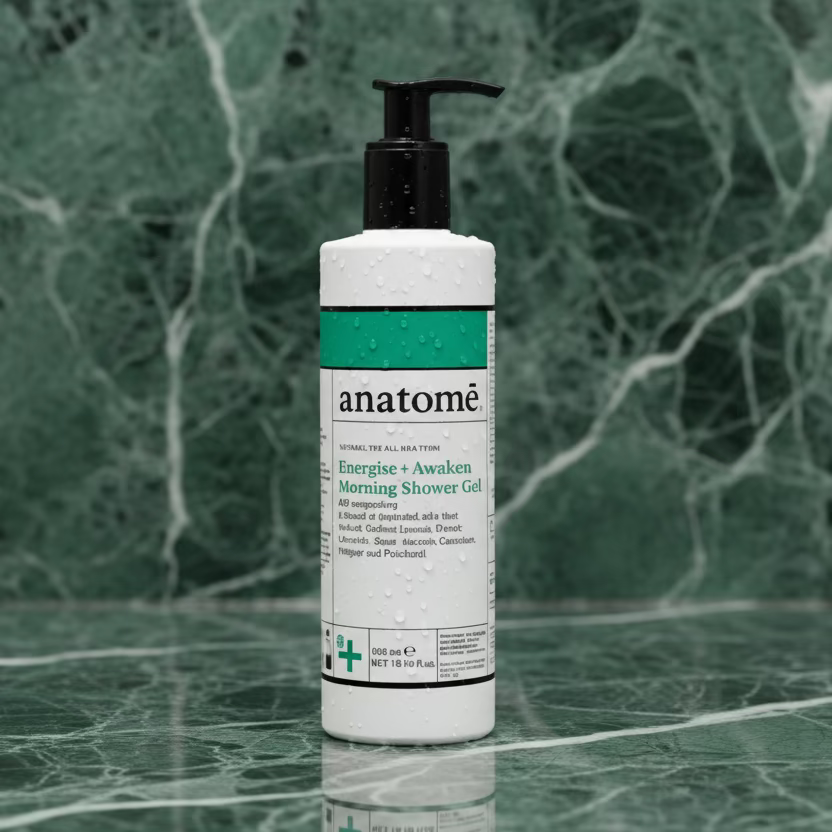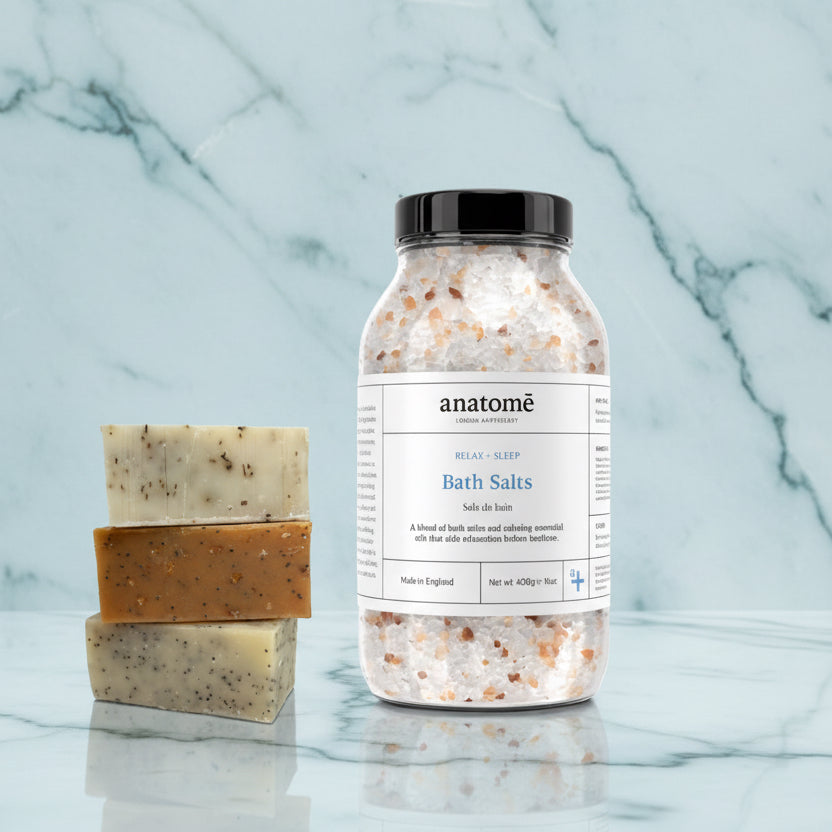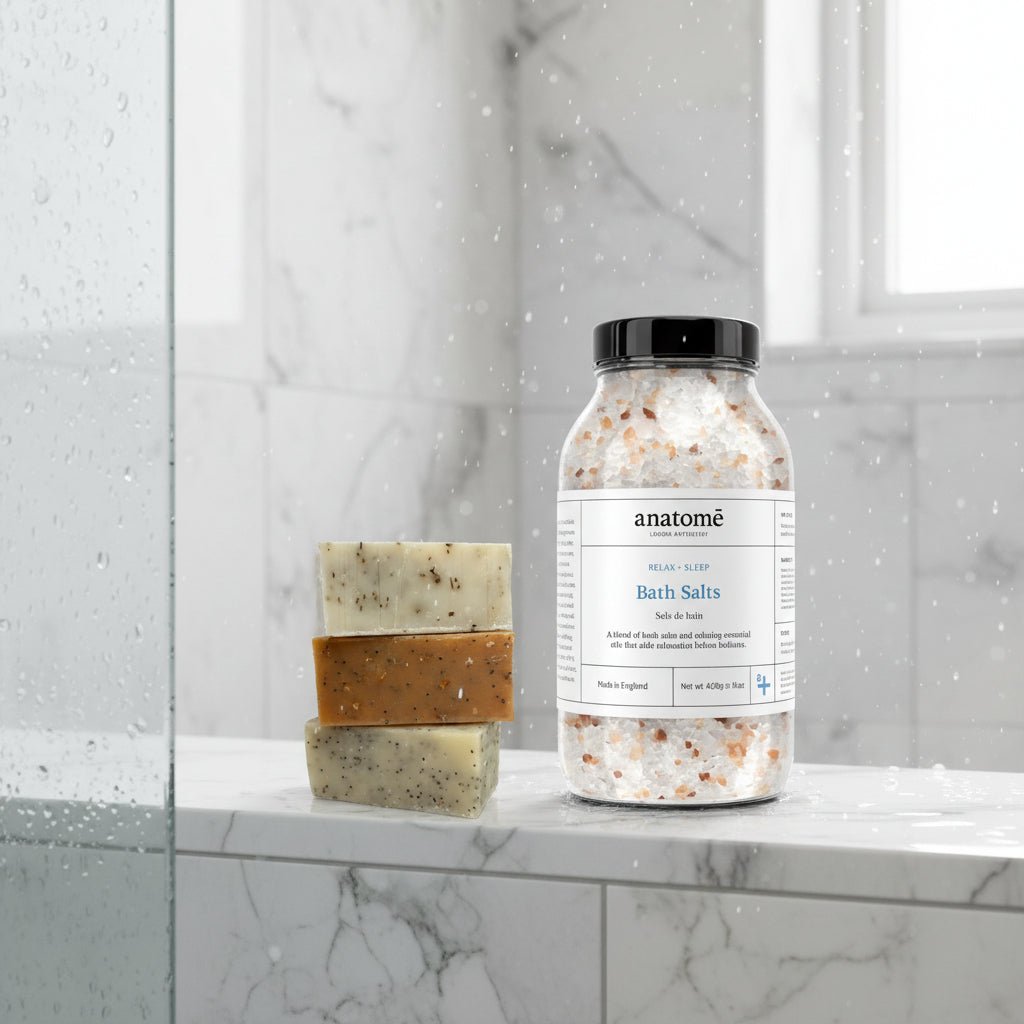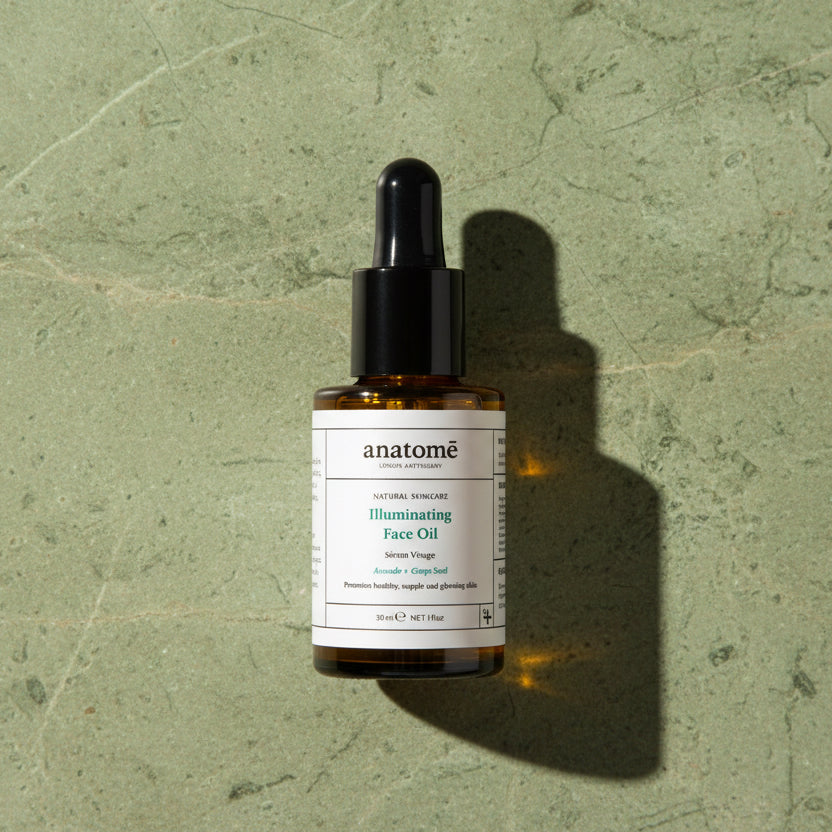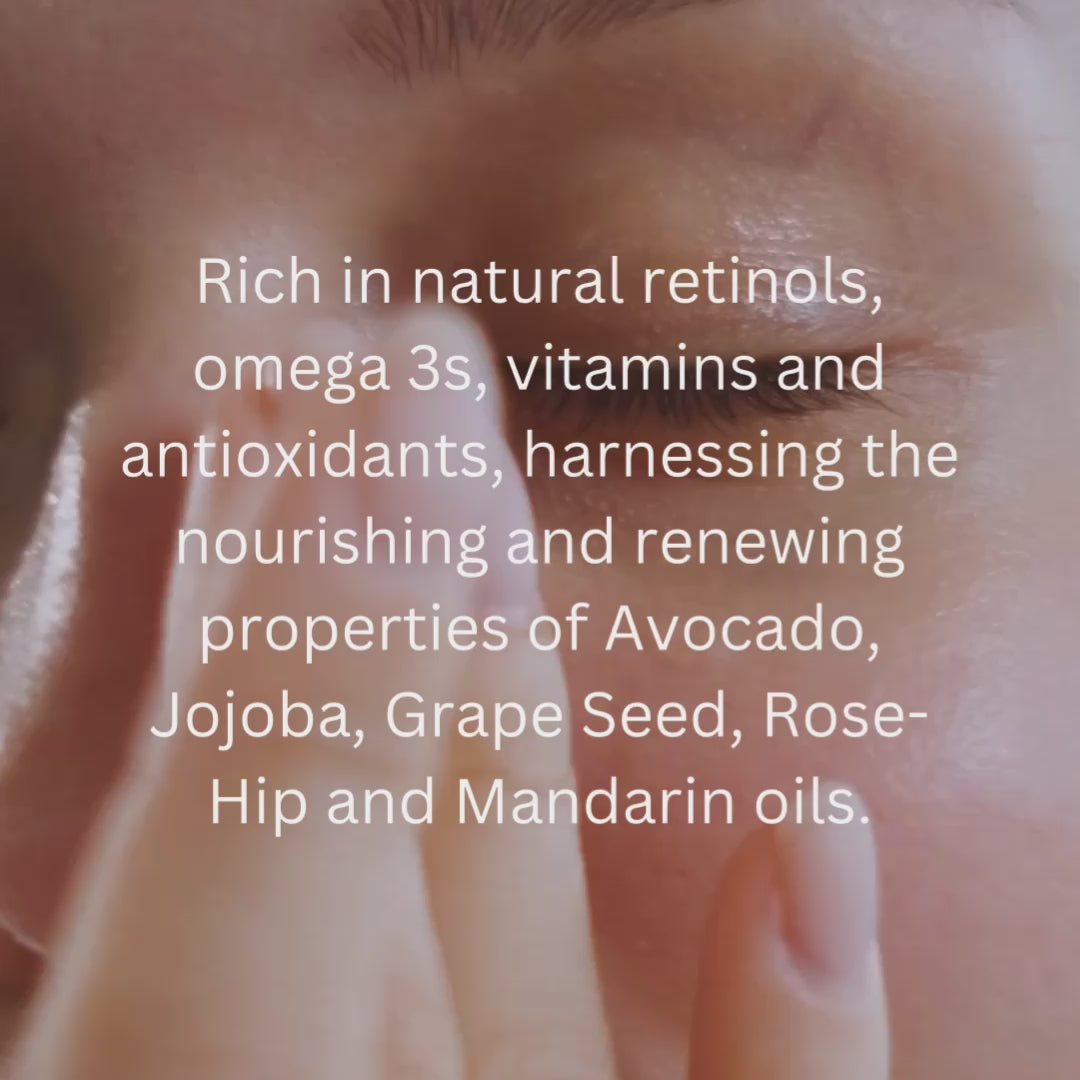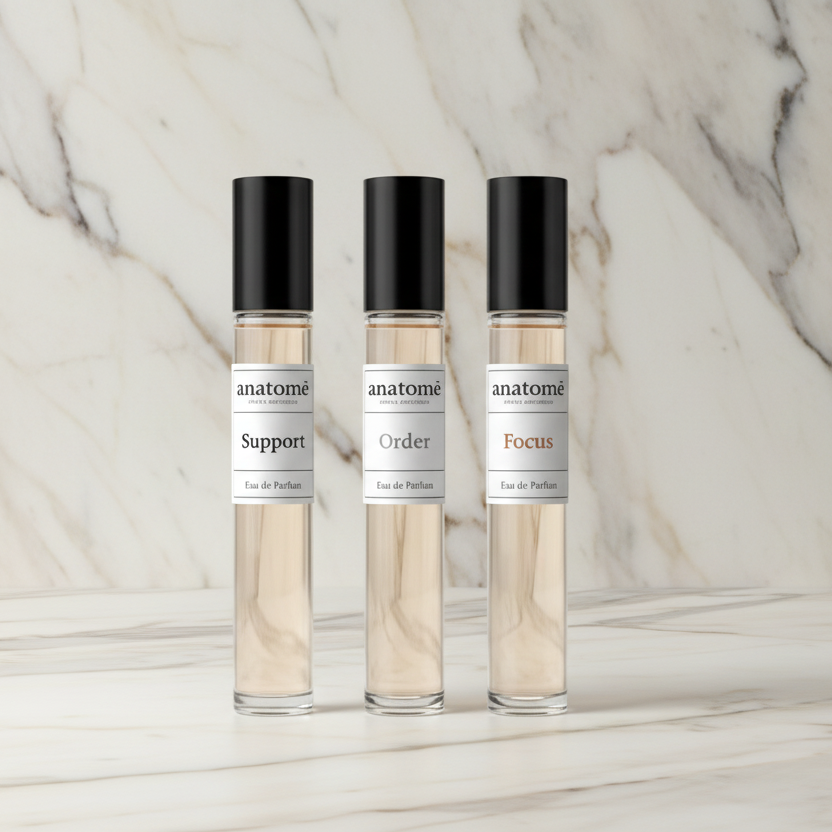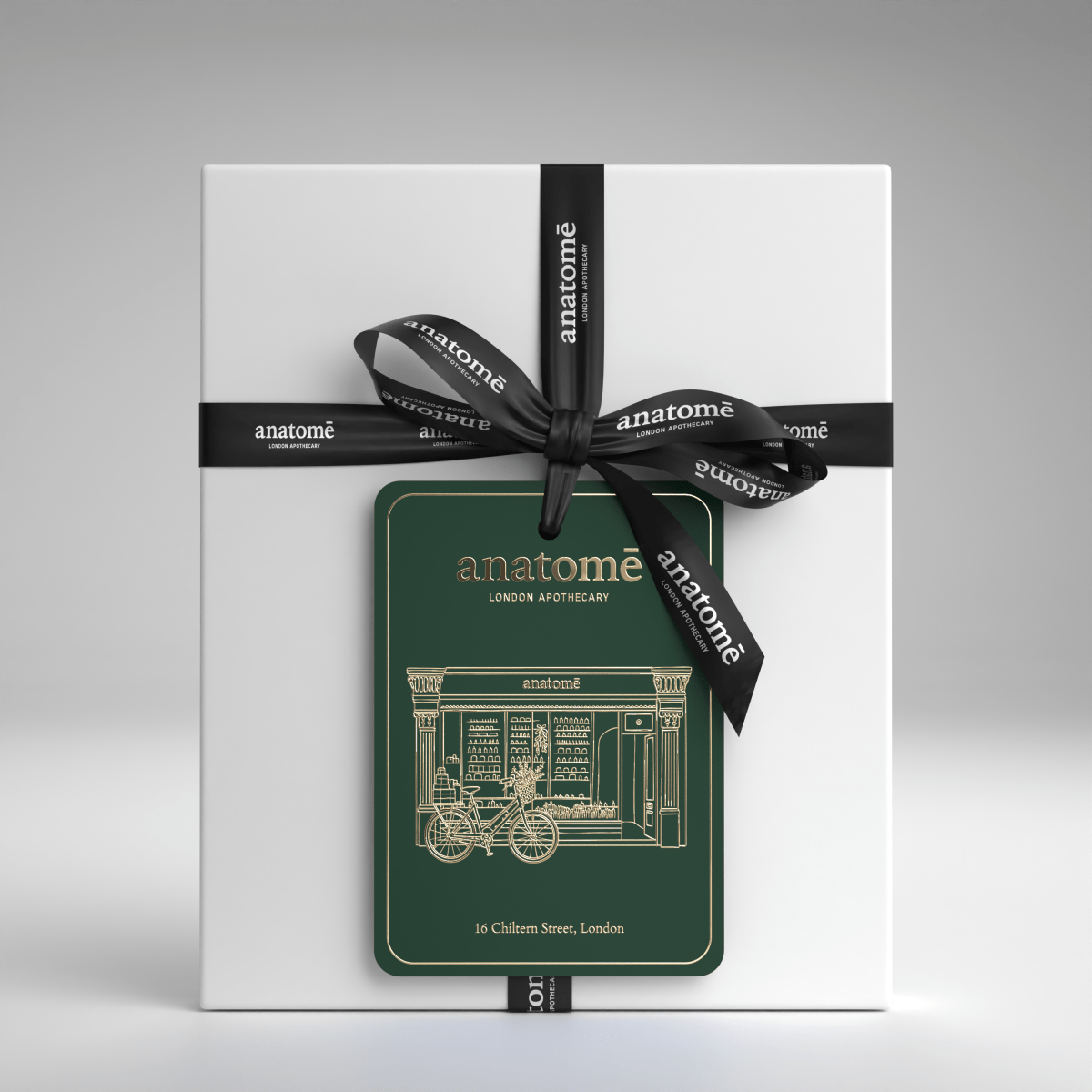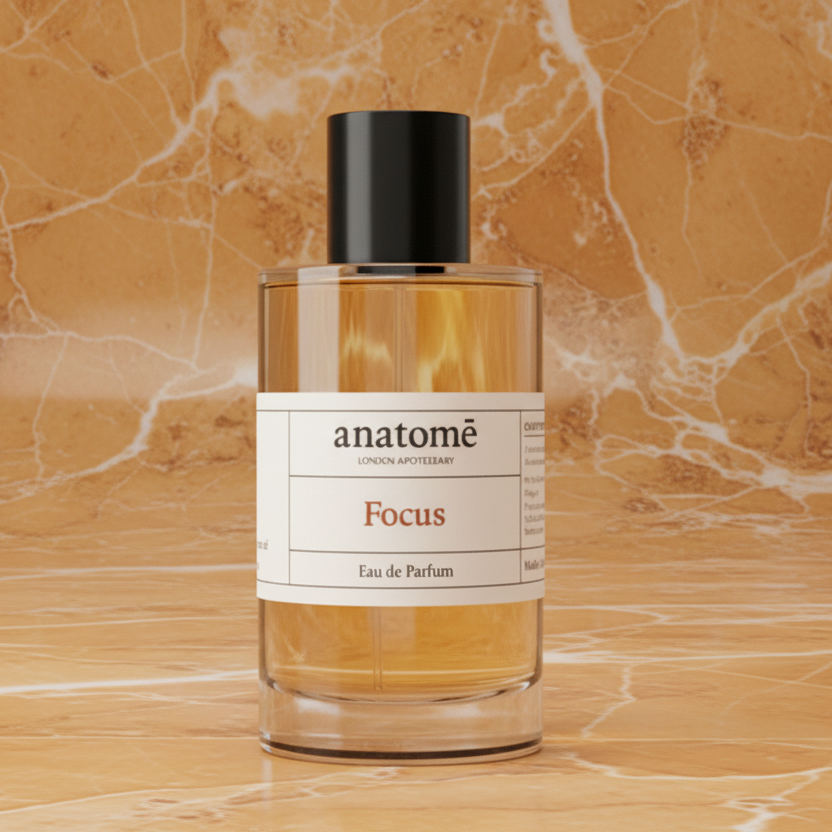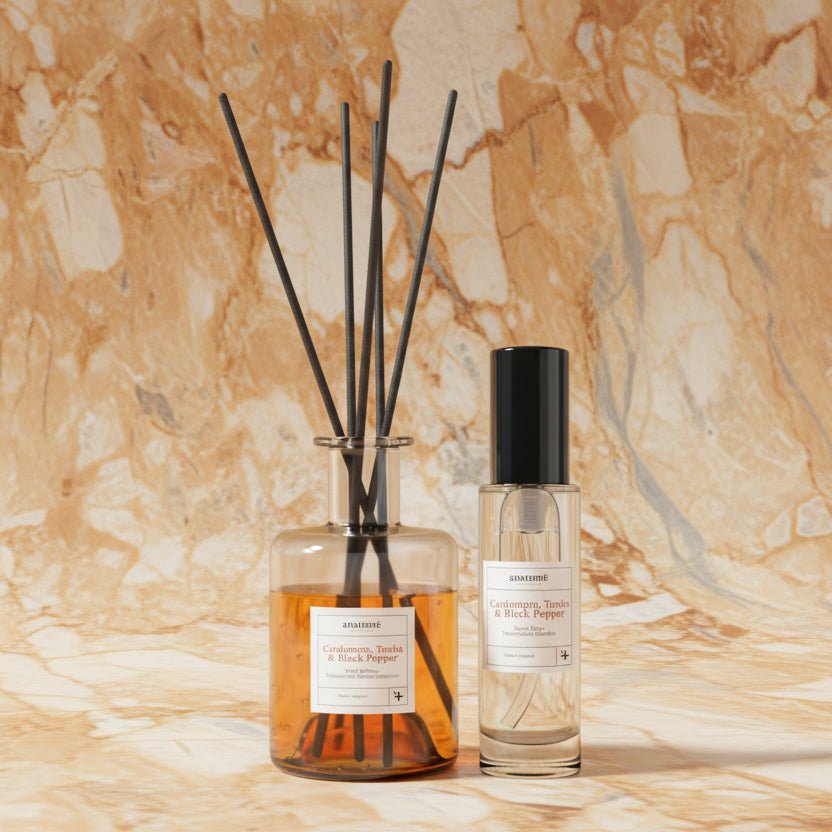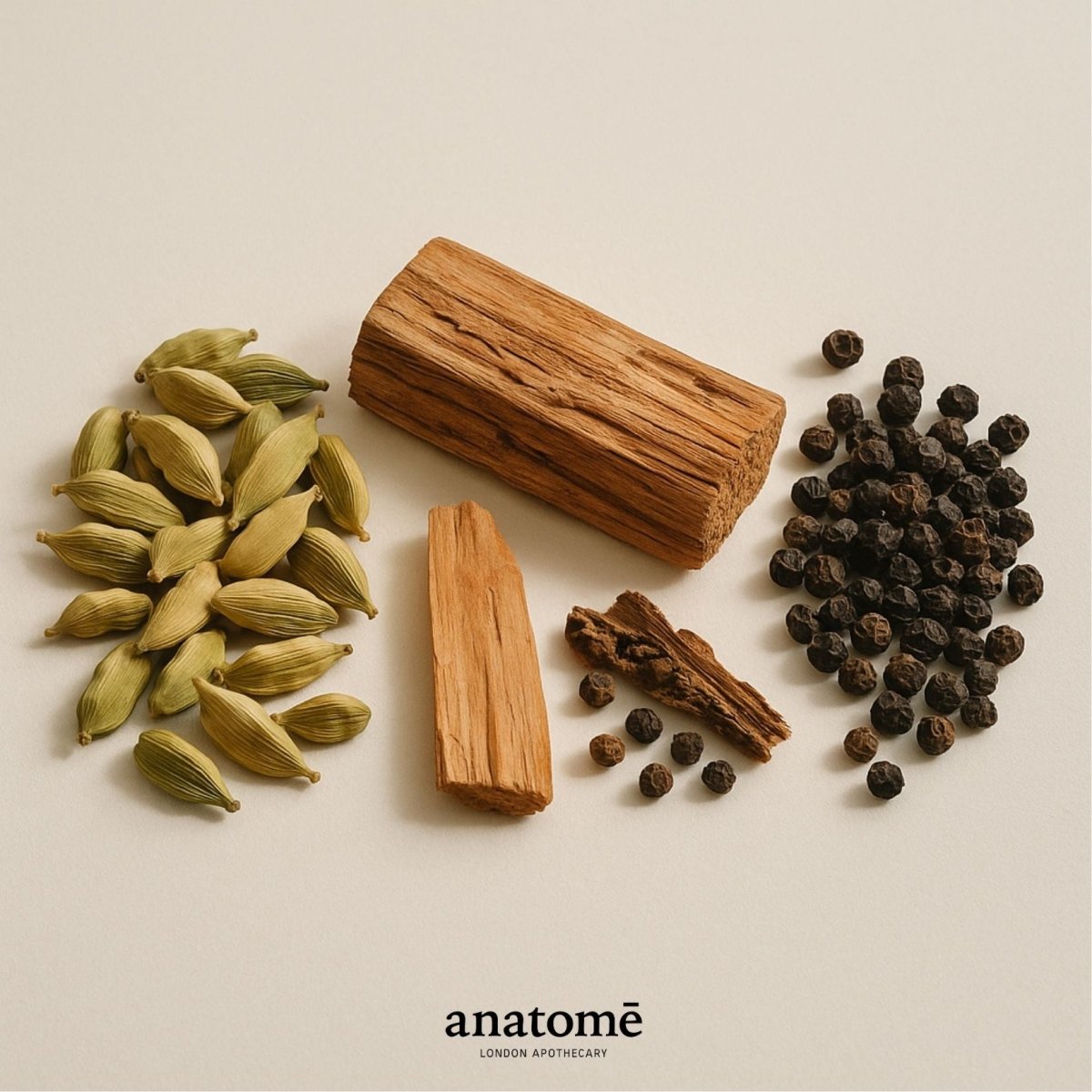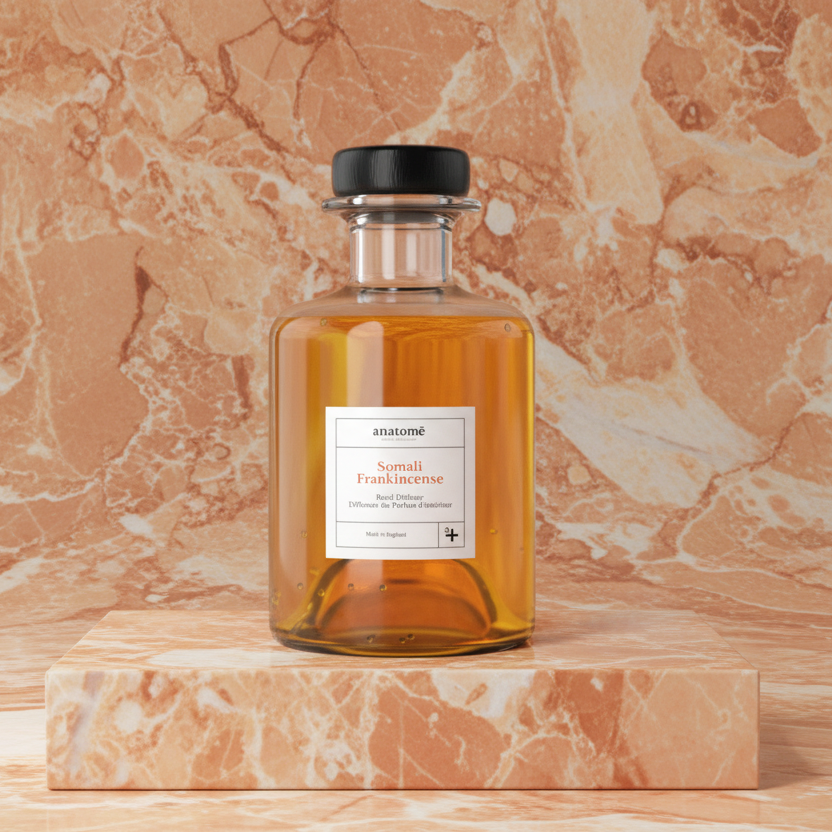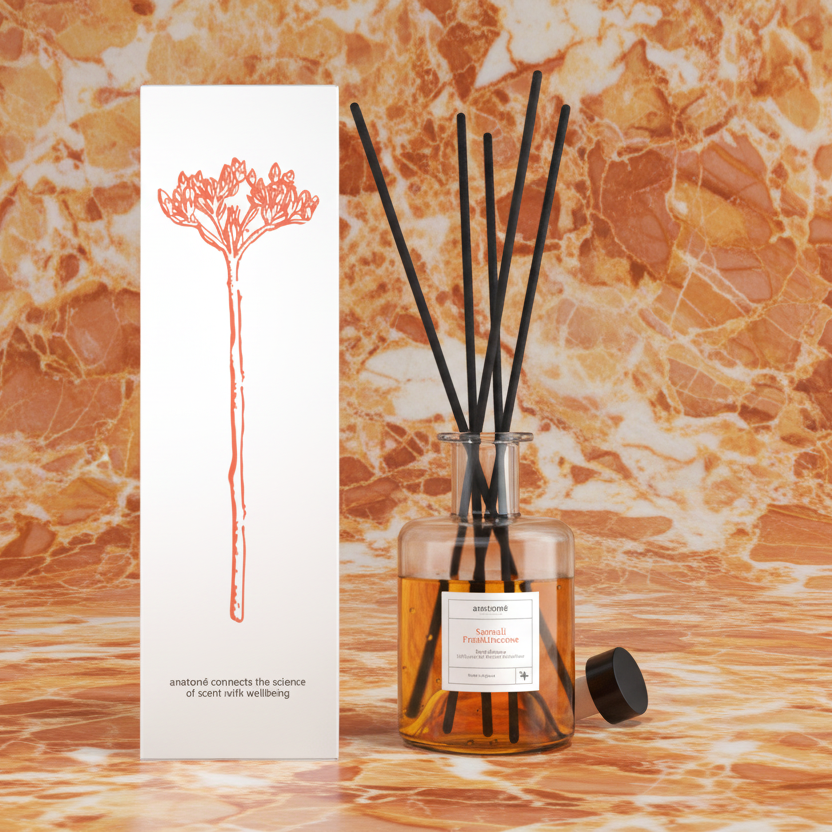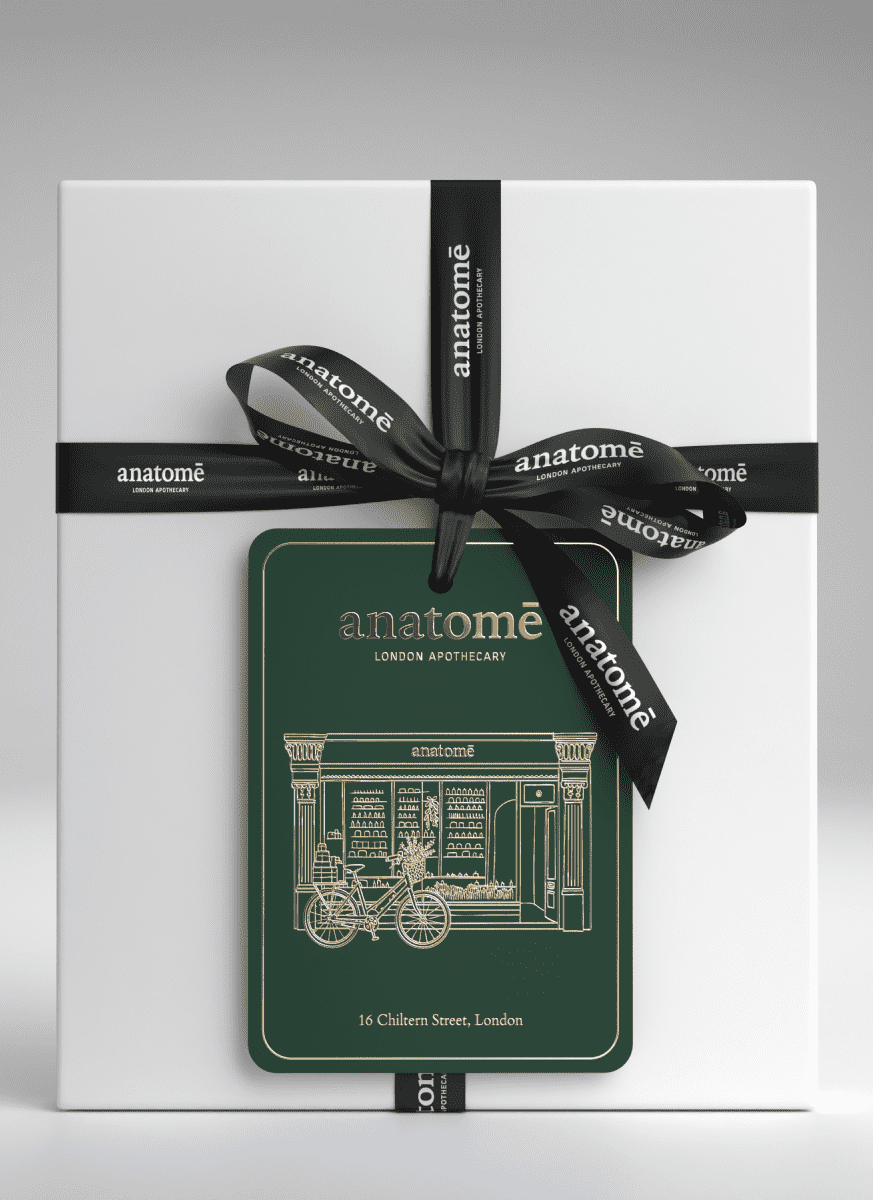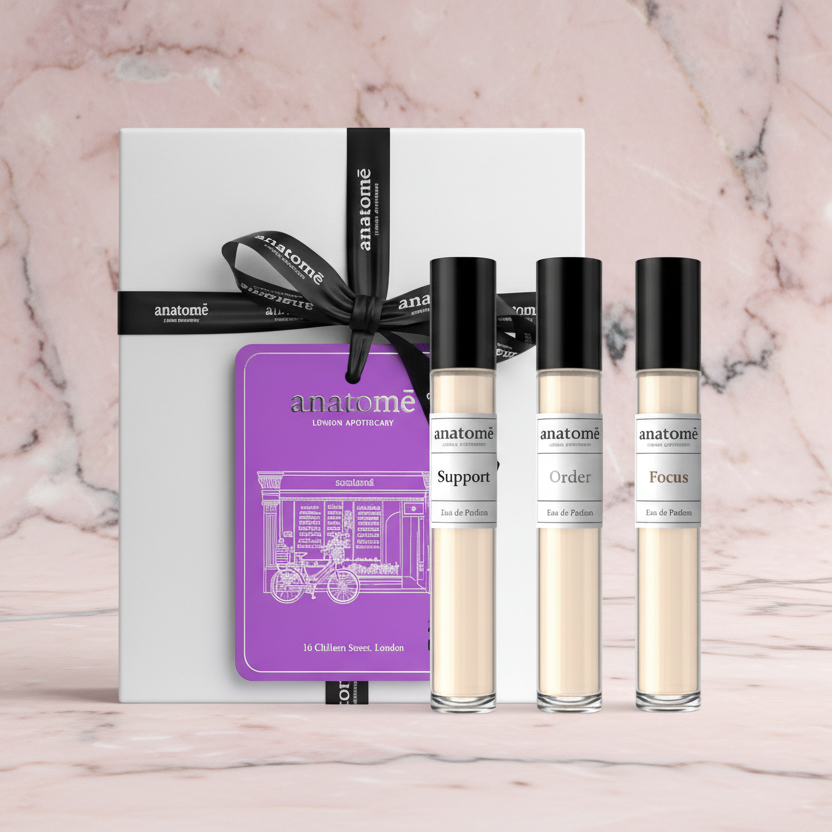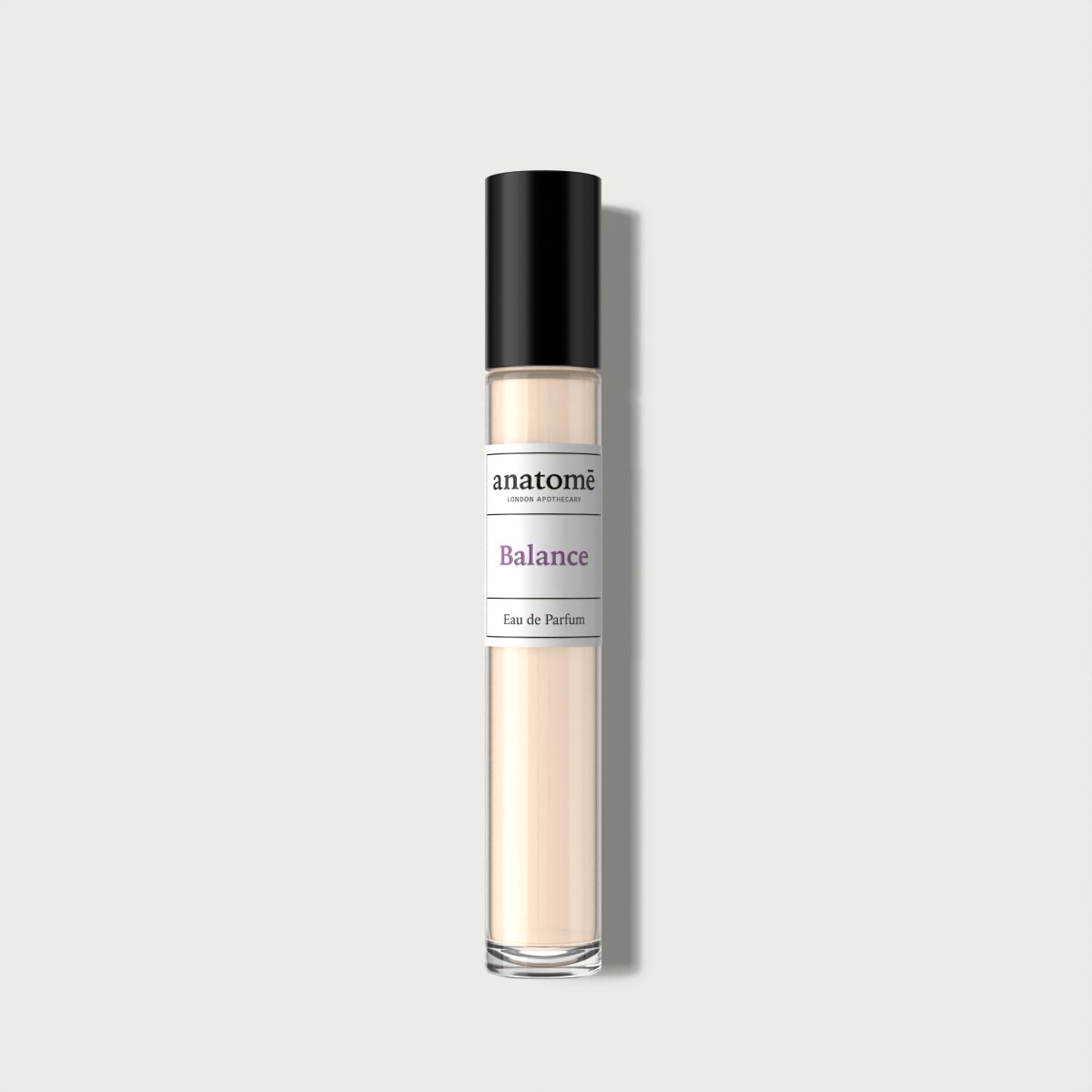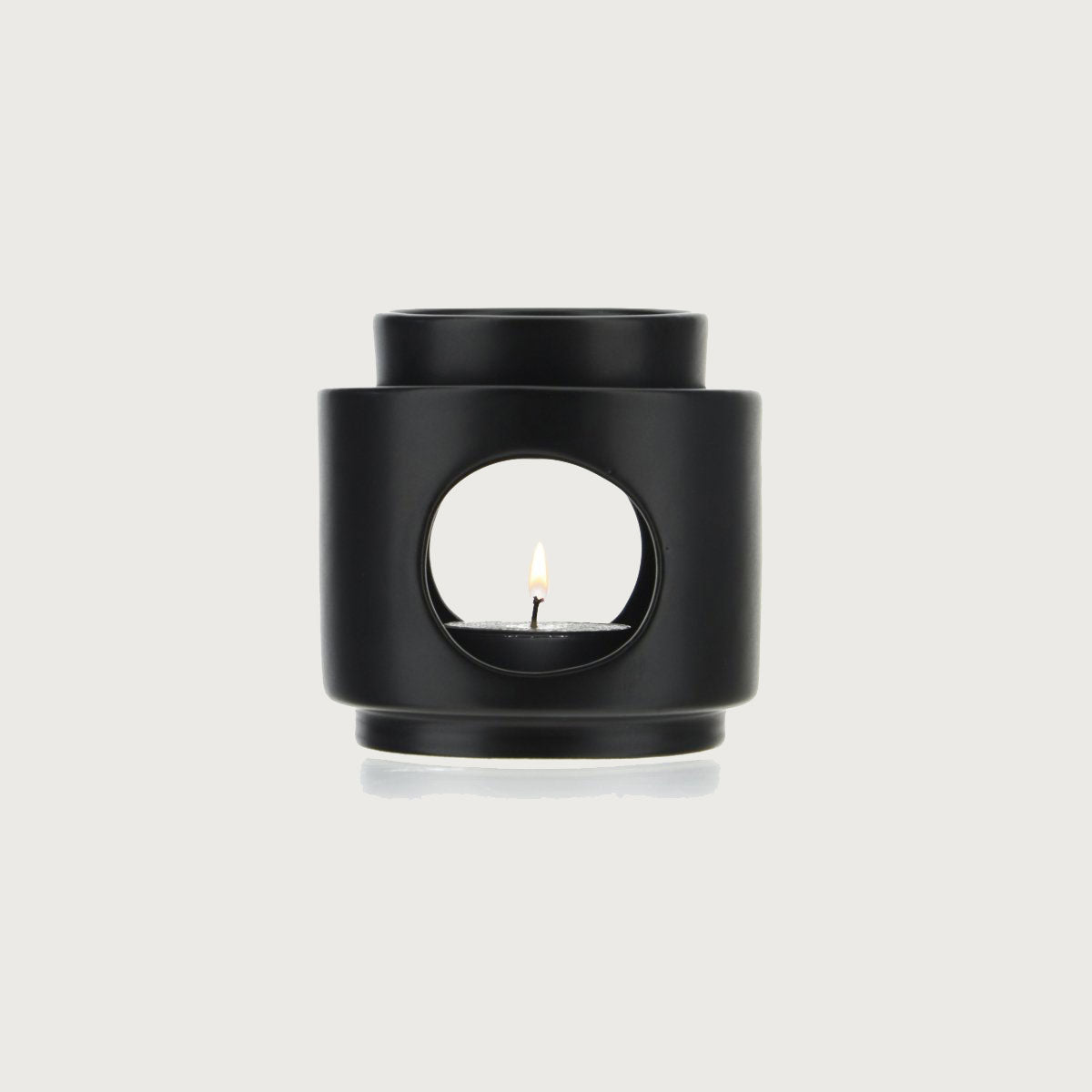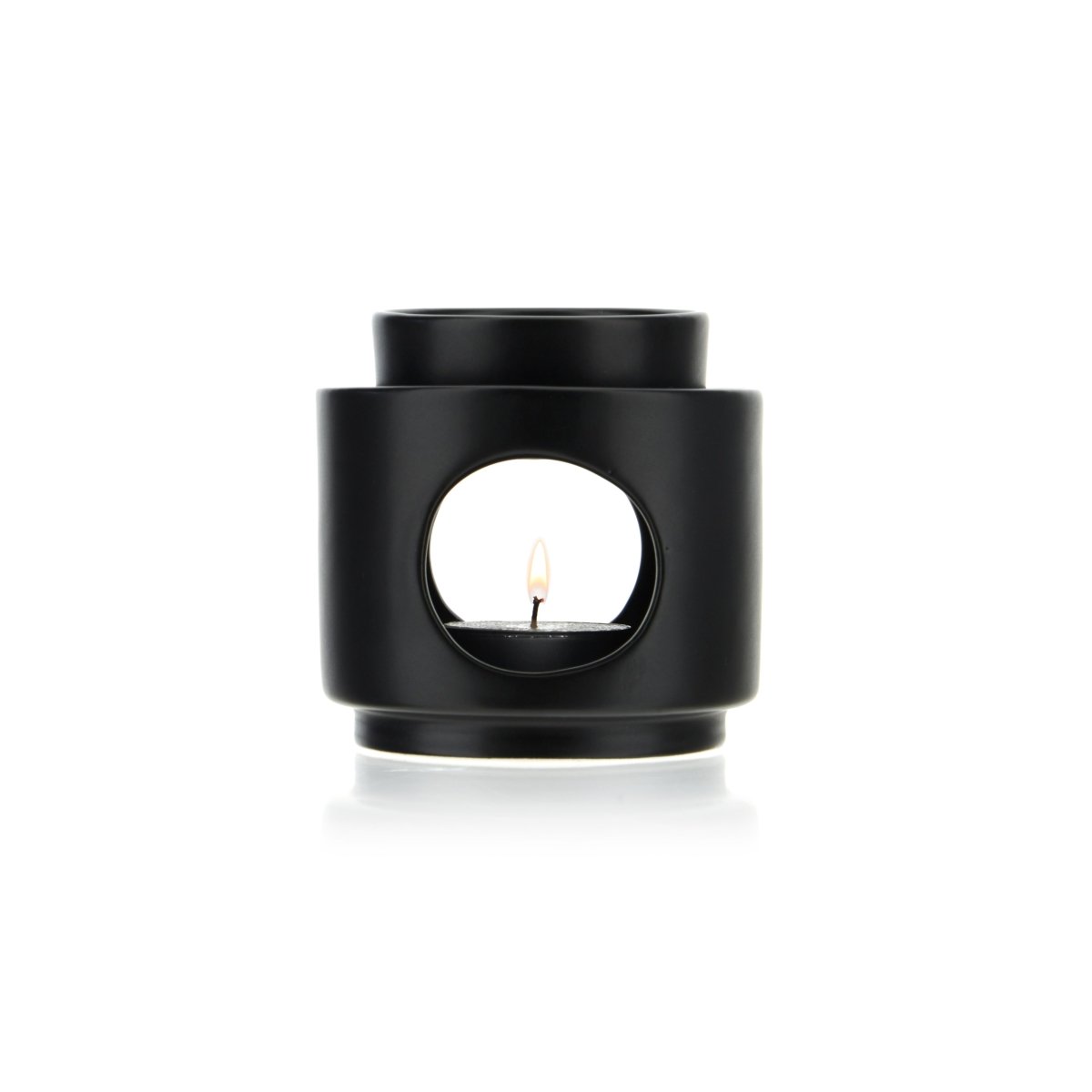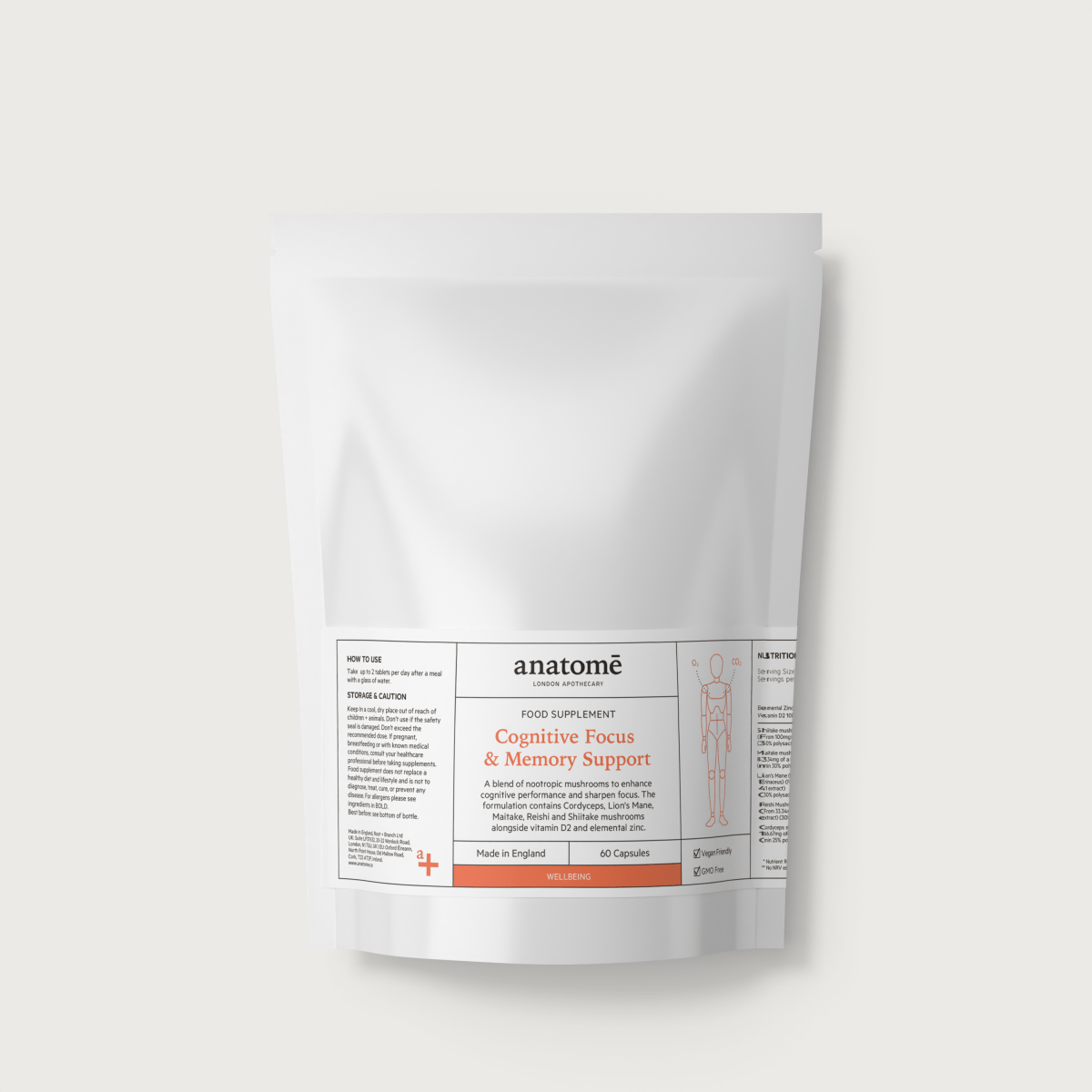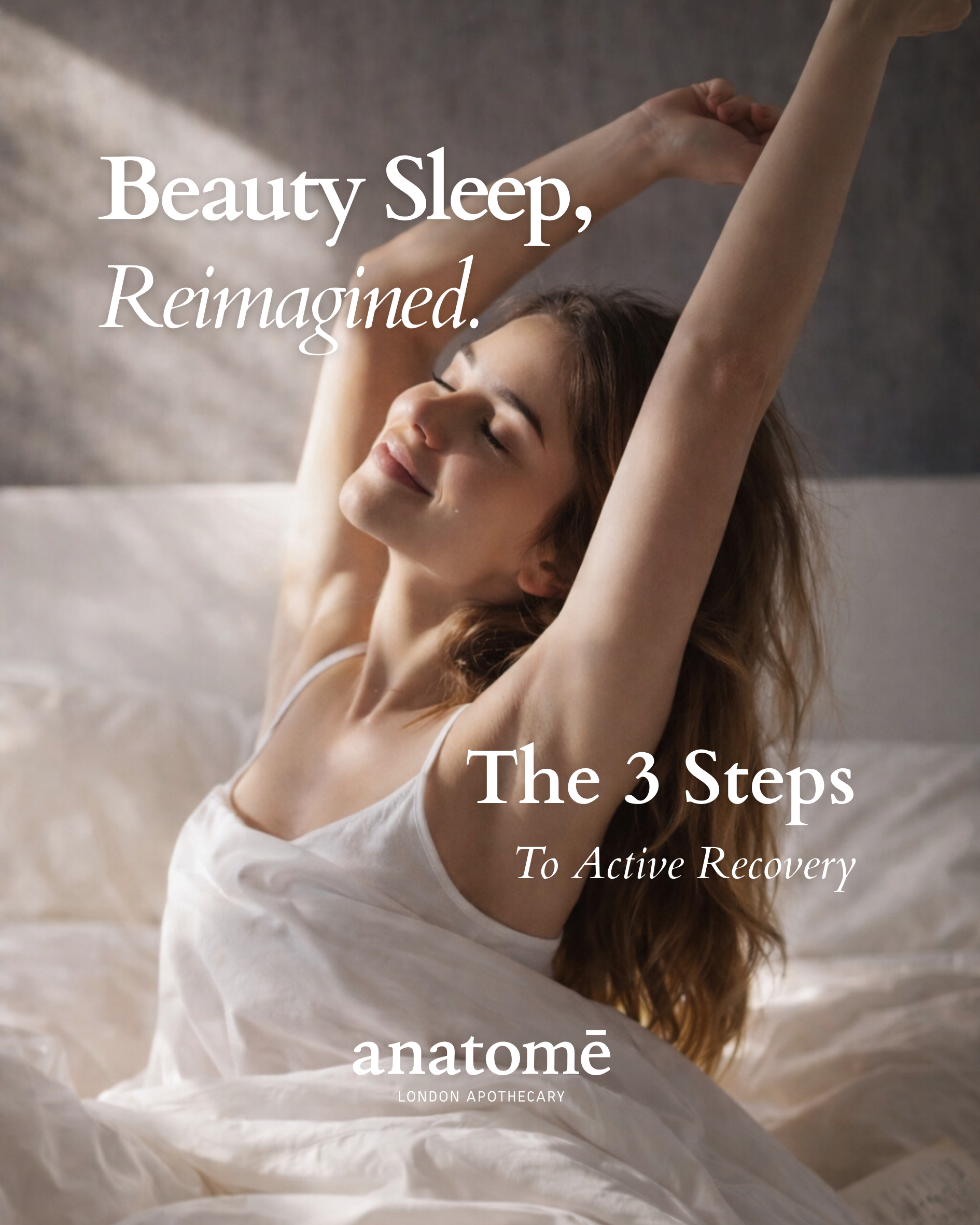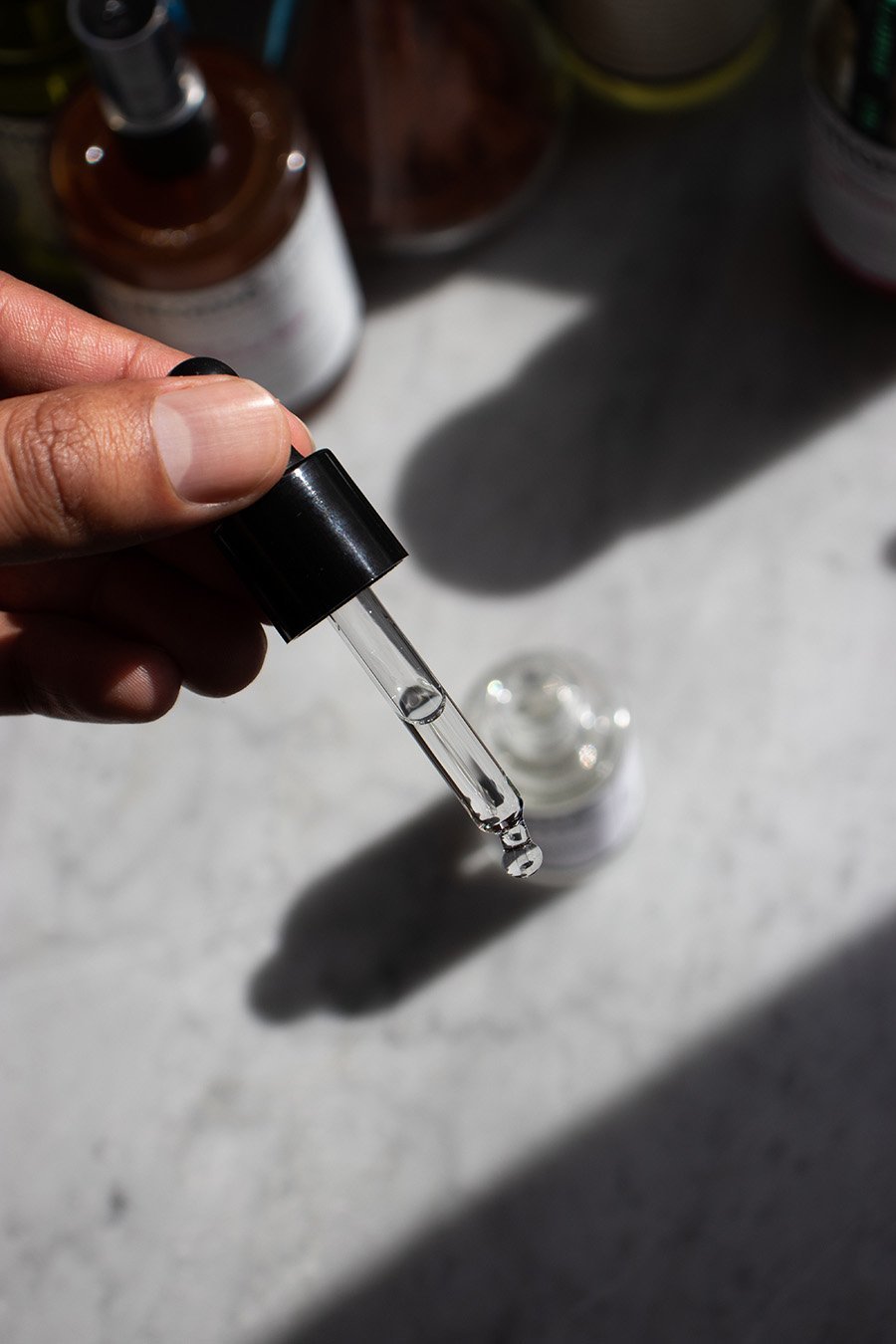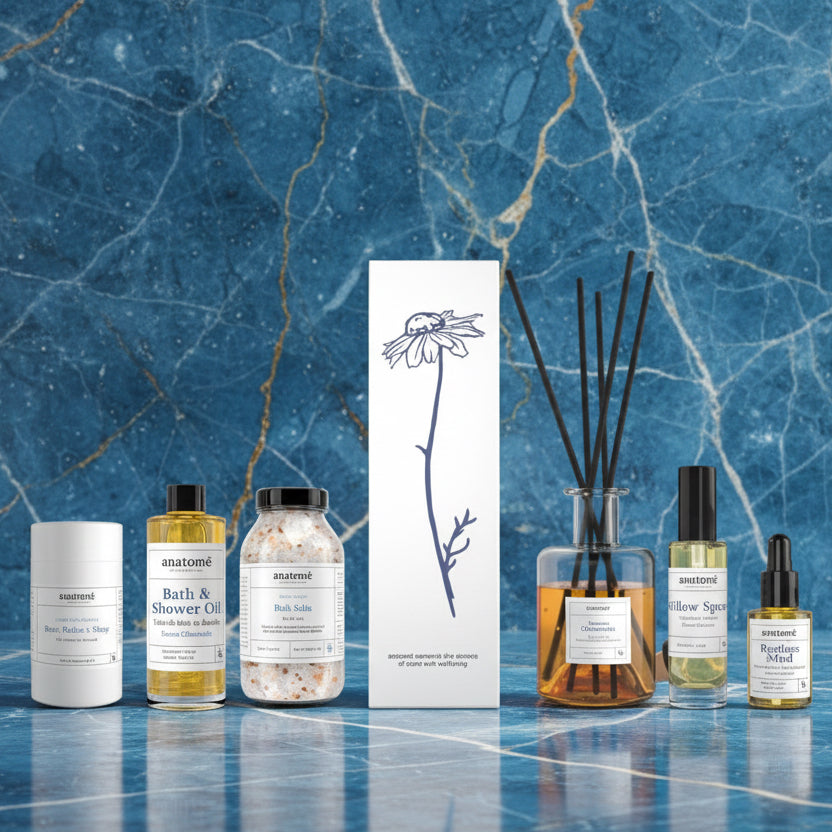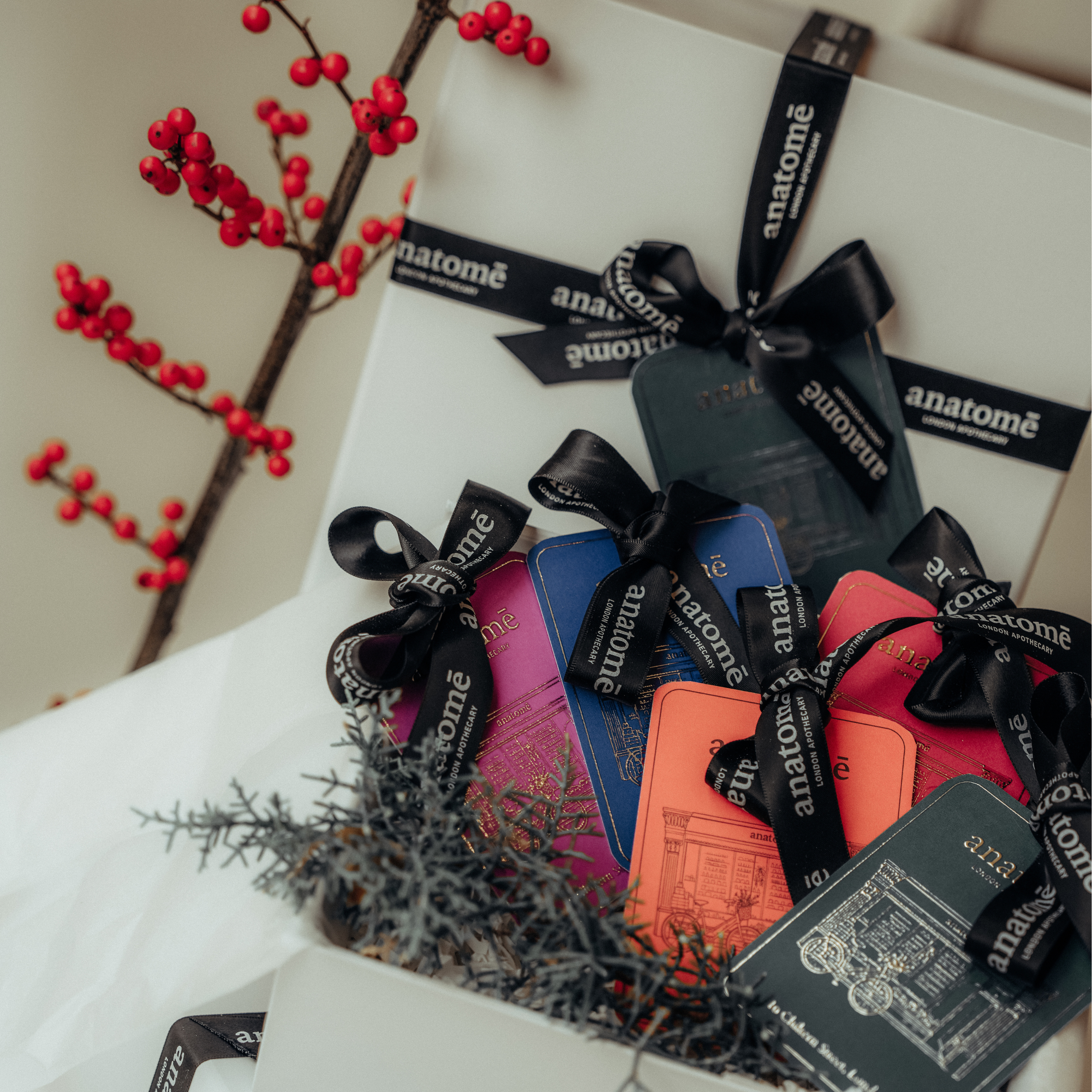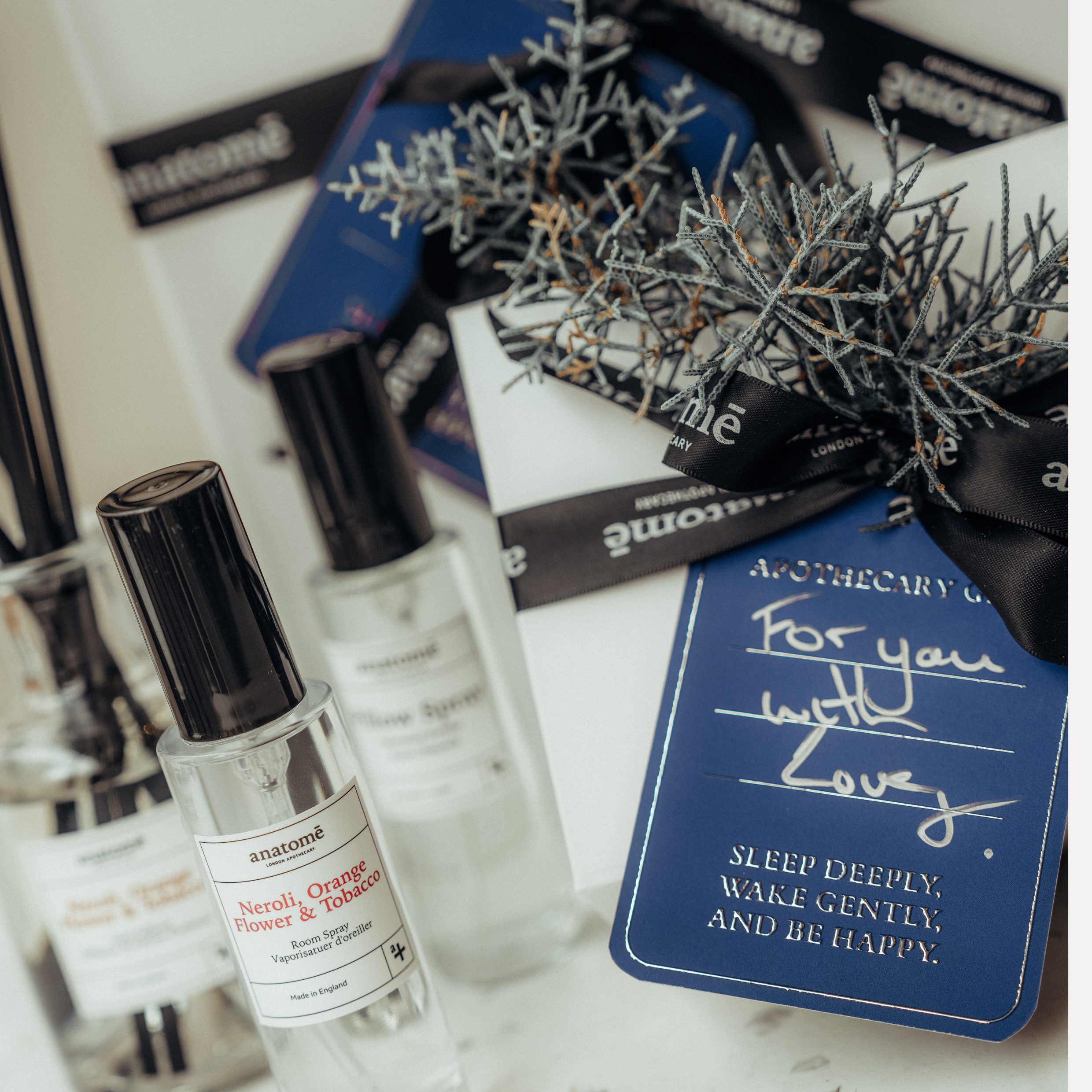While the most common way to use essential oils is to inhale them, applying them to the skin has many advantages, including benefits for the skin and boosting the wellbeing effects of the oils through the stimulation of sensory points. Careful though, not every essential oil can be used topically without dilution! If you're using a pure oil, you will need to dilute it in a carrier oil before applying to your skin.
Applying essential oil to the skin
Apply a few drops of the oil on the sensory points and massage vigorously until the oil is absorbed. The characteristics and actions of each type of oil are specific to the plant family and the part of plant extracted which are used to target particular imbalances along the sensory points.

What are sensory points?
Sensory points are spots in the human body called meridians. These meridians have been the subject of intense investigation because of their unique anatomical composition. The sensory points include nerves of various types, blood vessels, and ligaments rich in nerve endings and suture lines. However, nerves seem to be the most common structure which is required for a relaxing response (1). By massaging the sensory points, you can relax the local tension or invigorate the body.
These sensory points are the basis for acupressure, which has been used in Traditional Chinese Medicine for over 2,000 years. "Acupressure is essentially a method of sending a signal to the body... to 'turn on' its own self-healing or regulatory mechanisms," (2). Chinese Medicine theorised that there were invisible lines of energy that crossed over the body called Qi and where these lines crossed were the meridians, or sensory points of the body (2).
Benefits of activating sensory points
Experts are starting to look at acupressure and pressure points as an alternative anxiety treatment. Most of the studies that do exist have been fairly small ones that focused on pressure points for anxiety before a potentially stressful situation or medical procedure, rather than general anxiety. Still, their results are promising. A review of several studies examining the effects of acupuncture on sensory points on anxiety, found that it seemed to help relieve anxiety before a medical procedure such as surgery (3). Another study, found that 85 people hospitalised for cancer treatment found that acupuncture on sensory points helped to reduce their anxiety (4).
Larger studies are needed to fully understand how to use pressure points for anxiety. But the existing studies haven’t found any negative effects, so it may be worth a try if you’re looking for a new approach to tackle your anxiety.
The effects of acupressure and pressure points on reducing pain has been studied more. One review found that in 9 out of 10 studies, acupressure is effective for reducing pain (5). Another study found that "self-administered acupressure shows promise to alleviate the symptoms of various health problems,"(6) but said that a larger sample size would be required to determine its efficacy. Regardless, it seems as if acupressure using the sensory points is a good way to tackle health issues.
By including essential oils with acupressure, you're able to reap the proven benefits of essential oils , in addition to the benefits of acupressure, in order to help support you through your daily or nightly challenges.
References
- https://www.ncbi.nlm.nih.gov/pubmed/20633518
- https://exploreim.ucla.edu/self-care/acupressure-and-common-acupressure-points/
- https://www.ncbi.nlm.nih.gov/pubmed/26002571
- https://www.ncbi.nlm.nih.gov/pmc/articles/PMC4441788/
- https://www.ncbi.nlm.nih.gov/pmc/articles/PMC3154967/
- https://pubmed.ncbi.nlm.nih.gov/25637155/

